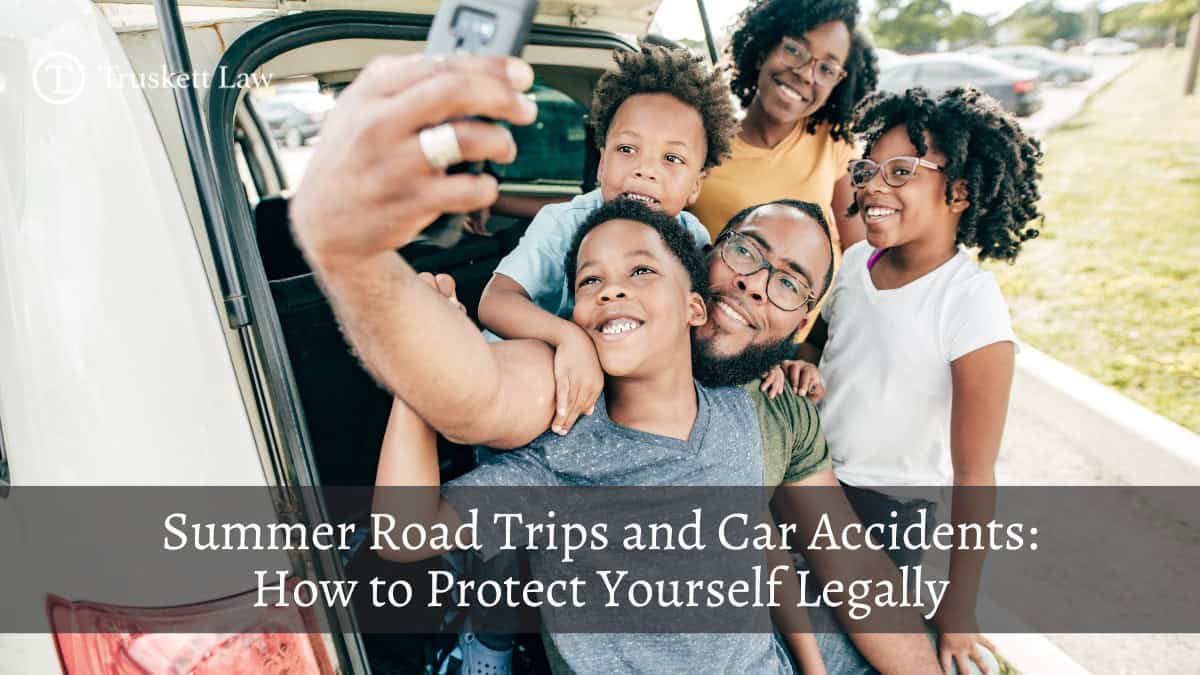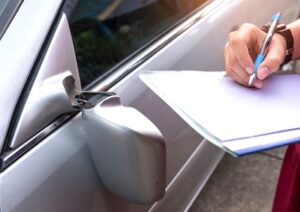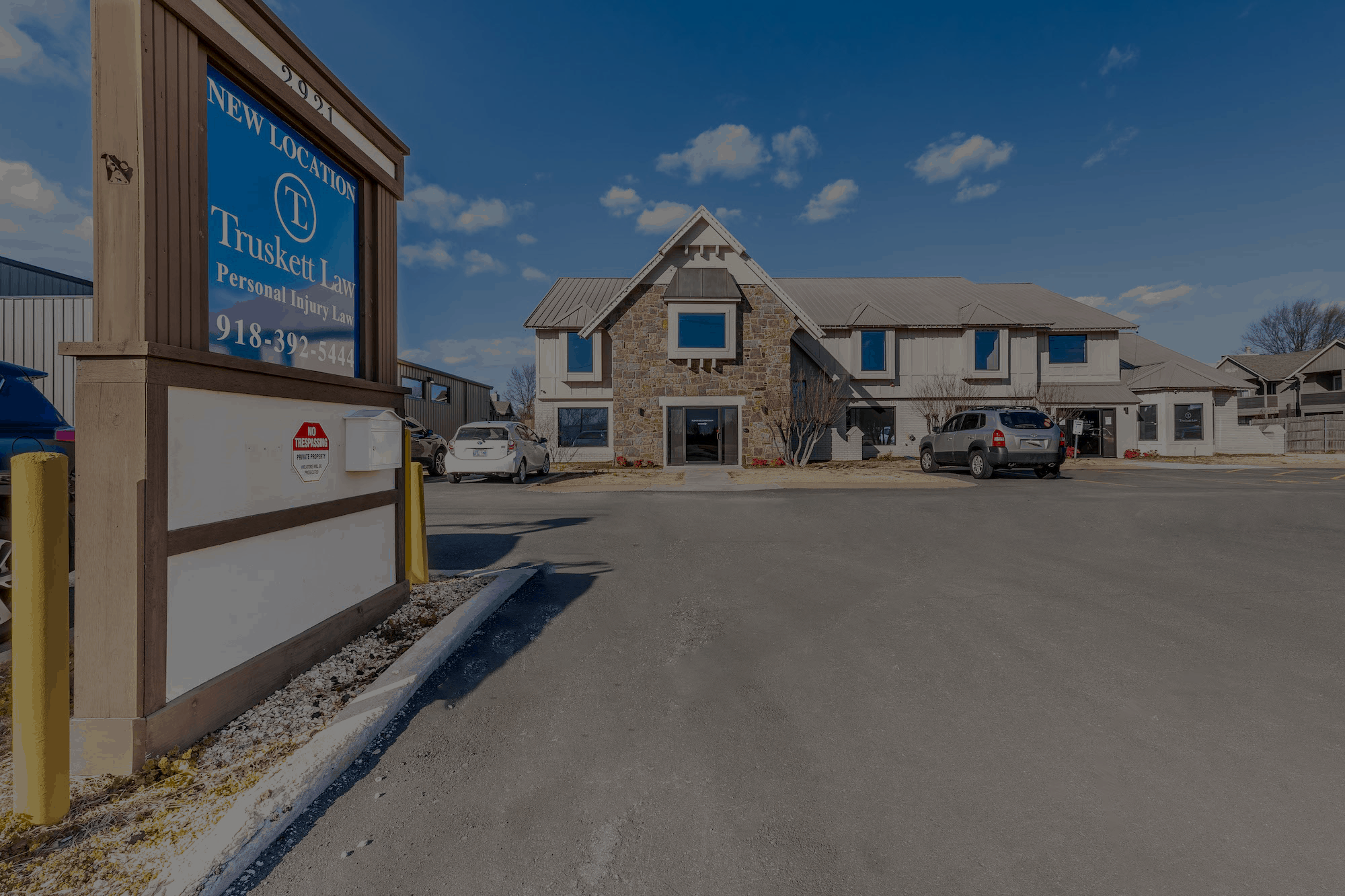
12 Jun Summer Road Trips and Car Accidents: How to Protect Yourself Legally
Summer road trips bring adventure, freedom, and cherished memories—but they also come with risks. Increased miles on the road mean a higher chance of car accidents, and protecting yourself legally helps ensure you’re prepared if something goes wrong.
In this blog post, we will dive into the key legal steps to take before, during, and after your summer getaway to safeguard yourself, your loved ones, and your finances.
Before You Hit the Road: Prepare Legally
Review and Understand Your Insurance Coverage
Before hitting the highway, make sure your auto insurance is up to date and provides the right coverage. Verify your liability limits and consider optional protections like collision, comprehensive, uninsured/underinsured motorist (UM/UIM), and rental reimbursement—especially if you’ll be driving a rental vehicle or towing a trailer.
Update Coverage for Other Drivers and Vehicles
If multiple people will be sharing driving duties, add them to your policy. Planning to borrow a friend’s car? Ensure it’s licensed properly and that they’ve added you as a driver so that coverage remains valid.
Consider Roadside Assistance Plans
A breakdown on a lonely stretch of highway can ruin more than your vacation—it can be costly. Whether through your insurer, AAA, or a car manufacturer’s program, roadside coverage for towing, tire changes, and jump-starts can save you time, money, and stress.
While You’re Traveling: Be Proactive
Maintain Proper Documentation in Your Vehicle
Store your auto insurance ID, vehicle registration, and driver’s license in the glove box. Having these documents readily available can streamline interactions with law enforcement or rental agents.
Take Photos of Your Vehicle Before Leaving
On long trips, especially those involving rentals or borrowed vehicles, take photos of dents, scratches, and existing damage at the start. That way, you’re less likely to be held responsible during inspection or after returning the vehicle.
Know the Law in Different States
Each state has different requirements for insurance minimums, PIP/MedPay, UM/UIM, and even DUI laws. If you’re traveling across state lines, look up the requirements in each jurisdiction you’ll pass through to ensure compliance.
If You’re in a Car Accident: Take Smart Legal Steps
Ensure Safety and Health
-
Pull over to a safe location and check for injuries.
-
Call 911 if anyone is hurt or if there’s property damage.
-
Seek medical attention promptly—even “minor” injuries can be serious when left untreated.
Report the Accident
-
Contact the police and request a formal accident report.
-
Notify your insurance company as soon as you can, even if the accident appears minor.
Preserve Evidence
-
Use your phone to take clear photos of damage, vehicles, license plates, and road conditions.
-
Note environmental conditions—weather, construction, signage, or obstructions.
-
Get contact info from other drivers and any witnesses.
-
Secure documentation like repair estimates, medical records, and bills.
Avoid Making Fault Statements
Even innocent phrases like “I’m sorry” can be construed as admissions of guilt. Stick to factual answers when talking to police or insurance adjusters.
Keep Detailed Records
Track everything—towing bills, medical appointments, car rental and repair receipts, and lost income. Also, log missed family events or vacations to support claims for pain and suffering.

Negotiating with Your Insurance Company
Insurance adjusters are trained to minimize payouts, so it’s important to approach negotiations carefully. Be prepared to advocate for yourself by presenting organized, thorough documentation and sticking to the facts of the accident.
File a Complete Claim Promptly
Include all documentation from the police, photos, and medical records. Incomplete claims are delayed and sometimes denied. The sooner you file with complete, accurate information, the faster your claim can be processed and evaluated fairly.
Be Wary of Quick Settlement Offers
Insurers may offer a fast, lowball settlement to wrap things up. Before signing anything, calculate realistic costs of repairs, medical treatment, rehab, and future medical needs. Accepting an offer too quickly can leave you responsible for uncovered expenses down the road, especially if new injuries or complications arise later.
Consult a Lawyer Before Signing
When a Lawyer Can Help
Complex Multi-Car Collisions
More cars mean more disputed fault. A lawyer can help untangle what happened and hold the responsible party accountable. They can also coordinate with multiple insurance companies, manage conflicting accounts, and preserve crucial evidence before it’s lost or disputed.
Uncooperative Insurers
If your insurance or the at-fault party’s insurer is stalling or denying your claim, an attorney can advocate for your claims and pursue legal action if necessary. They understand the tactics insurers use to avoid paying and can intervene to protect your rights and secure a fair outcome.
Serious Injuries or Future Care Needs
Legal Protections for Travelers
Medical Payments Coverage (MedPay/PIP)
If included in your insurance, this helps pay for medical bills regardless of fault, beneficial during travel. It can cover expenses like ambulance rides, ER visits, and follow-up care, providing peace of mind when you’re far from home.
Uninsured/Underinsured Motorist Coverage
Protects you if the at-fault driver lacks sufficient insurance. Given that travel can include encountering unfamiliar drivers, this coverage can serve as financial backup. It can also help cover hit-and-run incidents, which are unfortunately more common during busy travel seasons.
Rental Car Coverage
What Comes After a Legal Dispute
Vehicle Repair vs. Totaled
Your insurer may declare your vehicle a total loss if repairs exceed a certain cost. You’ll receive a payout based on the actual cash value minus any deductible. It’s important to review the insurer’s valuation of your car and provide evidence of upgrades or special features that could increase its worth.
Receipt of Injury Compensation
Medical and rehabilitation claims typically require documentation. Complicated cases might need doctors or experts to testify about your condition. Keeping a detailed record of your treatments, prescriptions, and how the injury affects your daily life can strengthen your claim and speed up the compensation process.
Settlement vs. Court
Taking Steps to Avoid Accidents on Summer Trips
Plan Smart, Drive Safe
Avoid rush-hour traffic, stay hydrated, and take rest stops every two hours. Fatigue contributes to accidents.
Check Road Conditions Ahead
Monitor weather alerts, especially in mountain or desert regions, where heat or flash floods can abruptly change driving conditions.
Drive Defensively and Be Unpredictable-Aware
Summer sees new drivers, motorcyclists, cyclists, and tourists. Others might make unsafe driving moves—stay vigilant.
Adhere to Speed Limits and Reduce Speed When Needed
Increased traffic and changing road conditions mean posted speed limits may still be too fast. Slow down in congested or unfamiliar areas.

Stay Safe, Stay Covered – And Know When to Call for Legal Help
Summer road trips are synonymous with relaxation and exploration, but having a legal plan while you travel is just as important as packing sunscreen. Reviewing your insurance, documenting your trip, and following the correct legal steps after an accident ensure you’re covered if things go wrong.
And when the stakes are high, consulting the Truskett Law team can protect your rights, simplify the process, and help you recover what you need to heal and move on. Being prepared lets you focus on the joy of the journey, knowing you and your loved ones are legally secure.


Sorry, the comment form is closed at this time.